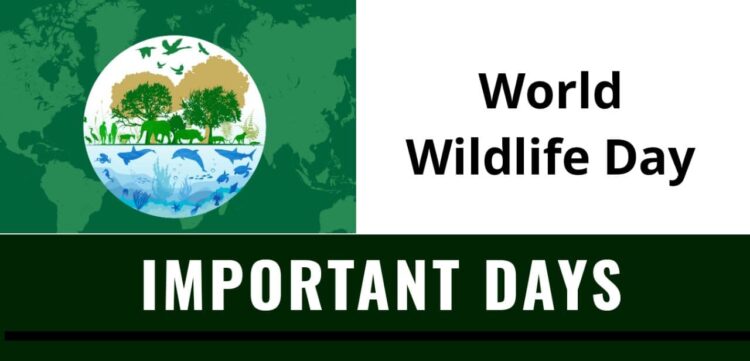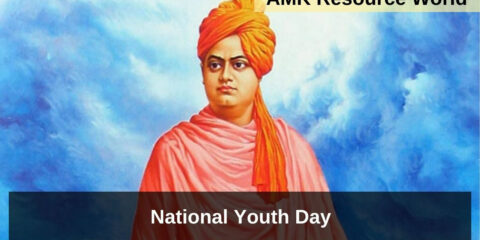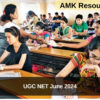| Celebrated Every Year on 3rd March |
CRUX
| Started Year | 2013 |
| Celebrated By | UN Member Countries |
| First Observed | 3rd March 2013 |
| Purpose | To raise awareness of issues that affect wildlife |
Earth is home for millions of species. Regardless of species, earth gives shelter for all. To sustain earth each and every species plays major role. Because ecology is like chain, if one hook goes off then whole system becomes disturbed. Just because animals and trees don’t talk that doesn’t means they don’t have any rights to live on earth.
‘Wildlife’ is a term that refers to animals that are not usually domesticated. They are a living resource that will die and be replaced by others of their kind. Wildlife plays a vital role in balancing the environment and it provides stability to different natural processes of nature. It can be found in all kinds of ecosystems like desert, rain forests, plains and other areas. India’s wildlife is both rich and varied; it includes all flora and fauna, animals, plants and micro organisms.
Wildlife is crucial for its stunning beauty, economic, scientific and survival value. It assists to preserve the ecological balance of nature and it also maintains the food chain. It provides useful substances and wild animal products like ivory, leather, honey, tusk etc. Besides this, being a country’s cultural asset it also provides aesthetic worth to man. Human beings are largely depending on wildlife for every basic requirement in his life. For ex: The clothes we wear, the medicines we consume and many more.
Definition of wildlife:
Wildlife is defined as free-living animals of major significance to man. Wildlife is a term that does not have a precise meaning and various definitions exist in literatures such as-
- Animals living in the wild without human interference.
- All living things which are out of direct human control.
Plants and animals that is not cultivated or domesticated.
- A practical definition can be given as “Any free-living vertebrate animals, often excluding fish.”
Wildlife is an integral part of our ecosystem. It is a matter of great concern that some species of wildlife have been already extricated while some others are facing extinction. Such extinction of species, though a part of the natural scheme of things has become a matter of concern because the alarming rapidity for decades now. Preservation of wildlife is of very great importance now.
HISTORY
On 20th December 2013, the 68th session of the UN General Assembly decided to proclaim 3rd March as World Wildlife Day to raise awareness of the world’s wild fauna and flora. That date is the day of the adoption of the Convention on International Trade in Endangered Species of Wild Fauna and Flora (CITES) in 1973, which plays an vital role in ensuring that international trade does not threaten the species’ survival.
Previously 3rd March had been designated as World Wildlife Day in a resolution that was made at the 16th meeting of the Conference of the Parties to CITES (CoP16) held in Bangkok from 3rd to 14th March of 2013. The CITES resolution was sponsored by the Kingdom of Thailand, the Host of CITES CoP16, which transmitted the outcomes of CITES CoP16 to the UN General Assembly.
The Secretariat of the Convention on International Trade in Endangered Species of Wild Fauna and Flora (CITES), in collaboration with other relevant United Nations organizations, facilitates the implementation of World Wildlife Day.
With 183 Member States, CITES remains one of the world’s most powerful tools for biodiversity conservation through the regulation of trade in wild fauna and flora.
THEMES:
2020: “Sustaining all life on earth”
2019: “Life below water: for people and planet”
2018: “Big cats – predators under threat”.
2017: “Listen to the young voices”.
2016: “The future of wildlife is in our hands”, with a sub-theme “The future of elephants is in our hands”.
2015: “It’s time to get serious about wildlife crime”.
OUR RESPONSIBILITIES ON WILDLIFE DAY
Try to understand about wildlife. That will be the great initiative taken by individual as responsible citizen. Take an eco- tour. It doesn’t matter in which country you live. You have number of options to connect with wildlife. Teach your kids about wild animals like how they live, what they eat and how it contributes to ecosystem.











































